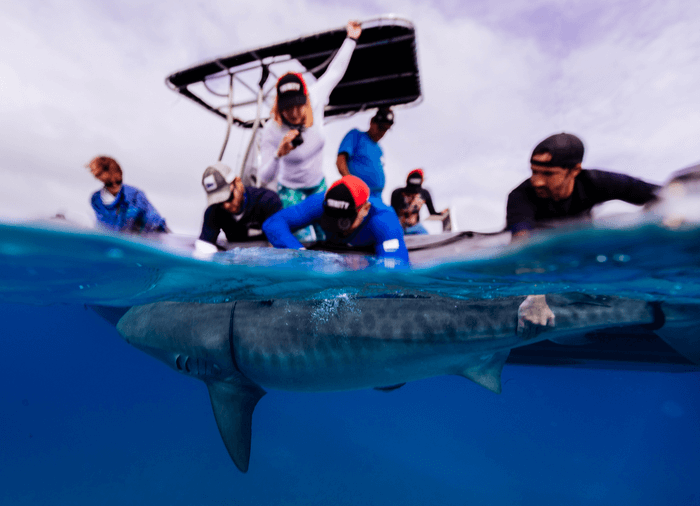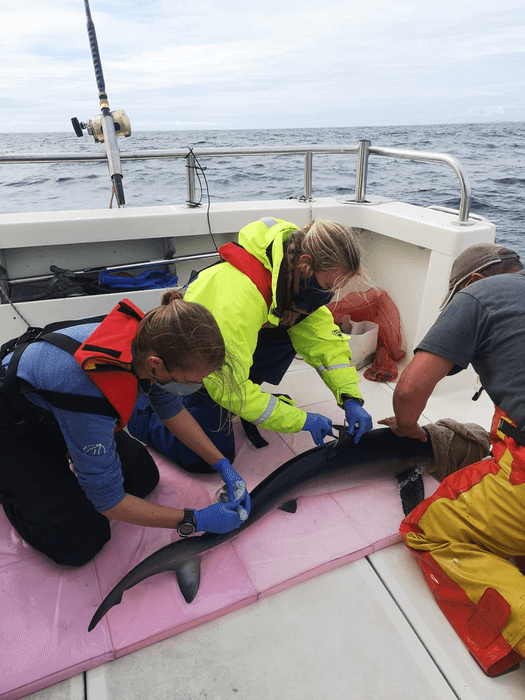
Lucy Harding and Dr Nick Payne work with their collaborators from Beneath the Waves to tag a 3 m tiger shark in the Bahamas in May 2019. (CREDIT: Diego Camejo)
DUBLIN, Ireland — Catching and releasing sharks may seem like a humane practice by anglers, but a new study finds it may still do tremendous harm to these ocean predators. Researchers from Trinity College Dublin say taking these cold-blooded creatures out of the water for even a short time sends their body temperature soaring.
Study authors believe this could cause both physiological and behavioral impacts on sharks. Lucy Harding, a PhD candidate from Trinity College Dublin’s School of Natural Sciences, and her team worked with shark angling operators to examine how catch-and-release practices affect these animals after they return to the water.
Specifically, the team looked at sharks swimming in the Bahamas, off the coast of Cape Cod, and in Irish waters around County Cork.
Anglers caught Blue sharks (Prionace glauca) and Tiger sharks (Galeocerdo cuvier) using rod-and-reel and drum lines (baited hooks) during the study. The team then inserted thermometers into each animal’s muscle to monitor temperature changes. They also attached biologging devices to their fins to record both body temperature and water temperature after the anglers released the animals.
“The temperature measurements we took show that catching sharks on a line resulted in rapid spikes in their body temperature, with one blue shark showing an increase of 2.7°C in just a few minutes – which, in physiological terms, is a huge elevation,” Harding reports in a university release.

Why is body temperature so important to a shark?
Since these particular sharks are cold-blooded, their body temperatures typically match whatever water they’re swimming in. This makes it very unusual to see a significant change. Moreover, the study reveals that it took up to 40 minutes for a shark’s body temperature to cool back down.
“Results like these illustrate the physical exertion sharks undergo during catch-and-release fishing. We don’t yet know whether the rapid, fishing-induced heating has a damaging effect on shark physiology but it’s something that is important to study in more detail in the future,” says Nick Payne, an assistant professor in Trinity’s School of Natural Sciences.
“Results from these studies could be used to design best handling practices for shark angling going forward; if we can adopt the least stressful fishing methods then it’s a win for the sharks and also for future generations of anglers,” Dr. Payne concludes.
The findings are published in the journal Conservation Physiology.








catch and release is nothing but animal abuse, you don’t have to have a degree in biology to know that.